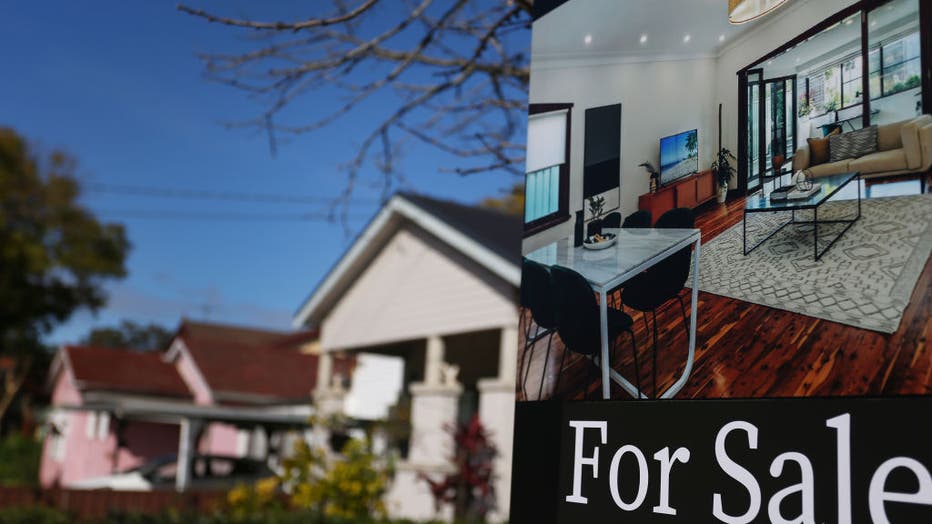Housing market outlook: Stability amidst uncertainty

John Adams: Don't panic about the housing market yet
Volatility in the stock market often leads us to questions about other major parts of the economy, but FOX 5 real estate expert John Adams says things may not be as bad as you fear.
If you've looked at your investment portfolio lately, you know Wall Street has been reacting to economic uncertainty, especially involving the ongoing discussion around global tariffs. That volatility in the stock market often leads to questions about other major parts of our economy, especially the housing market. Is residential real estate headed for a downturn?
It's easy to connect market volatility to housing fears, but FOX 5 real estate expert John Adams says the picture for residential real estate is quite different right now.
Adams says that, when you look at the fundamentals, you see a market that's far more stable than headlines might suggest. Here are the three main points to understand:
1. Supply and Demand Dynamics Support Prices
Despite recent economic uncertainty, the basic principle of supply and demand remains the most significant driver of housing prices.
We are still dealing with a lingering shortage of homes for sale, which worsened considerably during the pandemic. While home builders are working hard to add new inventory, the supply available for buyers still hasn't caught up to the underlying demand.
This ongoing imbalance between supply and demand provides crucial support for current price levels.

A real estate sign is seen at a property in Croydon Park on Sept. 06, 2022. (Photo by Lisa Maree Williams/Getty Images)
2. Homeowners are financially stable and not forced sellers
A major difference between today's and past downturns is the strong financial position of most current homeowners. Many have mortgage interest rates well below today's average, with some locking in rates around 2.75% during the pandemic.
With rates closer to 6.875% for a 30-year fixed loan, there's a clear financial disincentive, often called "rate lock," for these homeowners to sell and take on much higher financing costs on a new home. This significantly limits the supply of existing homes hitting the market.
Furthermore, a large percentage of homeowners – around 40% nationally – own their homes free and clear of any debt.
Almost all current owners have substantial equity. These factors mean very few people are in a position where they have to sell, preventing a flood of distressed properties that could drive prices down.
3. Market adjustments are healthy, not a crash
Yes, we've seen recent data showing a drop in March home sales volume, suggesting some buyers paused due to uncertainty.
However, this sales slowdown is not translating into collapsing prices because of the factors we discussed. Instead, we're seeing the market move towards a better balance between buyers and sellers. A key sign of this is the increase in seller concessions – things like contributing to closing costs.
Nationally, around 44% of sellers offered concessions in the first quarter, even higher in some local markets like Atlanta.
This isn't sellers giving homes away; it's negotiation returning.
Many sellers are now willing to help with closing costs to get the deal done, which helps with the affordability for buyers without requiring significant cuts to the home's list price. It's a sign of a rebalancing market, moving toward a healthier equilibrium, not a collapse.
The bottom line:
When you look beyond the stock market headlines and focus on the housing market's specific fundamentals – tight supply relative to demand, financially secure homeowners with low interest rates, and market adjustments like concessions – the outlook is for stability.
While one major forecaster, Zillow, recently predicted a small price dip, the overwhelming consensus among most respected housing economists, like the National Association of Realtors and Case-Shiller, is for modest price gains over the next 12 months, likely in the range of 1% to 3%.
The residential real estate market remains resilient, operating on its solid foundation, largely independent of the daily gyrations of Wall Street.
There is simply no evidence suggesting a housing crash is imminent.
John Adams is a longtime FOX 5 Atlanta real estate expert, broker, landlord and consumer advocate. He has helped Georgia residents navigate real estate issues for more than 15 years.

